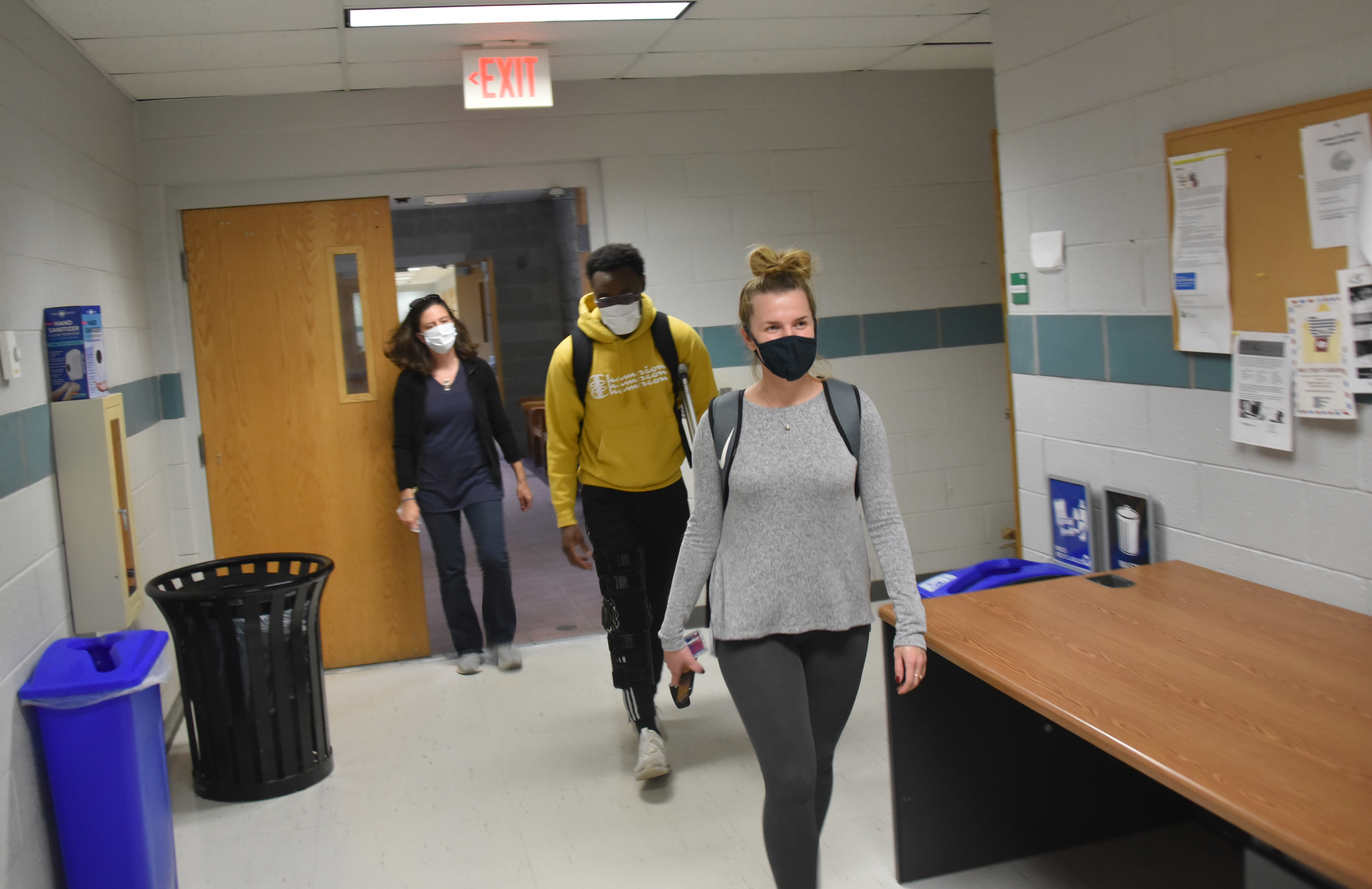
Univ. kept safe during pandemic; latest enrollment figures
With a little more than two weeks remaining in the 2020 fall semester, Delaware State University is counting its management of campus operations a success – even amid the ongoing COVID-19 pandemic.
Despite the pandemic, which has significantly reduced college attendance nationwide the University achieved enrollment numbers similar to last year’s record year.
The University’s fall 2020 enrollment was 5,027 students – 27 short of the record enrollment of the previous year. This year’s enrollment included record numbers of graduate and online students, 608 and 230, respectively.
Due to COVID-19, the campus residential population was reduced to 1,575 – down from what is usually a residential population of more than 2,200.
While many other colleges and universities across the country struggled with the Coronavirus crises, forcing some to end residential operations, Delaware State University developed a partnership with Testing for America, a non-profit organization consisting of clinical and public health professionals dedicated to creating testing programs to allow higher education to operate safely during the pandemic.
As a result, students and employees have been tested for COVID-19 twice weekly throughout most of the semester, The University also instituted requirements for mask-wearing, social distancing, a reduced residential population, conversion of most classroom courses to virtual hybrid curriculum, and eliminated campus events involving large gatherings.
Continuous messaging and communications, much of which was produced by the students themselves, reminded campus members of their ongoing individual responsibility to do their part to keep their community healthy.
Those implemented measures at Del State yielded a COVID-19 positivity rate of only 0.4%, that drew national attention from the Today Show, GM3, Nightline, and CNN.
“We have been successful in keeping our University community safe by relying on the best science and public health practices; rigorously pursuing our mission; and caring enough about each other to hold each other accountable – day in and day out,” said University President Tony Allen. “That is what means to be a substantively diverse, contemporary and unapologetic HBCU.”
Since July, the University has done 31,147 tests on students and employees; of those tests, there were only 133 COVID-19 positive results (122 students and 11 employees). Because the turnaround for test results was normally 36 hours or less, the University was able to conduct effective contact tracing to reduce the spread from infected persons.
Dr. Michelle Fisher, Director of the University’s Office of Health Service said the Health Center staff deserves a lot of credit for the Del State’s success in limited the spread on campus.
“We have a dedicated staff that recognizes the importance of what we are doing,” Dr. Fisher said. “Contact tracing occurs seven days a week. Regardless of when the test result is received, the positive individual is notified, placed in isolation and their close contacts are identified.”
She added that the contract tracing work has been especially critical.
“Contact tracing is a very important step in the prevention of COVID-19,” Dr. Fisher said. “Early isolation of positive individuals and quarantining their close contacts is essential in managing and preventing further spread of the virus.”
By Wednesday, Nov. 25, most of the residential population will leave to go home for Thanksgiving, where they will finish the rest of the semester virtually. A population of about 200 students (spring athletes in training, international students and those with extenuating circumstances) will continue to reside on campus in between semesters. Those remaining campus residents will be regularly tested.
Del State students will return to campus on Jan. 19 for the spring semester. The start of spring semester will be one week later than normal, but that week will be made up by the elimination of spring break in March. . Due to its success over the past several months, the University expects to be able to host a slightly larger residential population and conduct a larger percentage of courses face to face.

